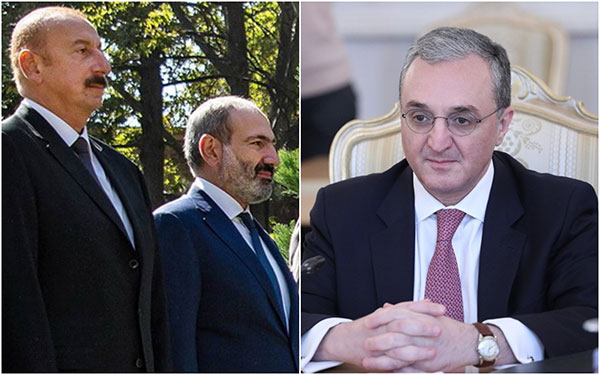After the CIS summit, Nikol Pashinyan stated that, during a conversation with Azeri President Ilham Aliyev, an agreement was made on preventing violations of the ceasefire regime, as well as about remaining loyal to bilateral discussions and negotiations. The third important agreement made by both sides, according to official statements, was that an operative connection was established between the two leaders.
Why does Yerevan consider such verbal agreements made in Dushanbe to be of such importance when the ceasefire agreement of 1994 exists, especially since that was signed by a representative from Artsakh? Aravot asked this to acting Minister of Foreign Affairs Zohrab Mnatsakanyan.
“The ceasefire agreement was and shall remain the basis for upholding the ceasefire regime. We rely on it and continue to refer to that document. I will repeat that that was and remains the basis for upholding the ceasefire, and we have nothing else to say about that. We have this history since 1994. If your question is about why this was necessary if the 1994 document exists, then you’re right, the 1994 document does exist. But reality also exists. There was a sharp increase in tensions since 2014, and there was a four-day period of aggression from Azerbaijan in 2016 against Artsakh. We had developments over the course of 2018 that could have resulted in new escalations since the situation along the Nakhichevan border was very worrying. We could not have allowed for any developments to take place that could have promoted new escalations, and working towards that is a constant challenge. That is why we emphasize activities to decrease risks as an important component,” the minister said.
Emma Gabrielyan


















































